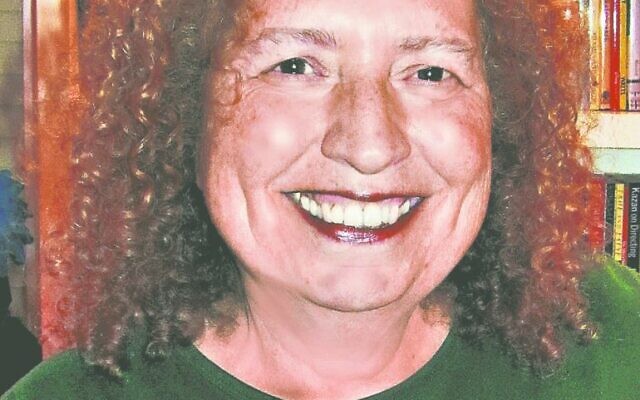How My Father Got to Israel
Chana details some of the more notable events from her family history.
Chana Shapiro is an educator, writer, editor and illustrator whose work has appeared in journals, newspapers and magazines. She is a regular contributor to the AJT.
My father, Ben Shatzman, was born at home on Christmas Day, 1915. A midwife came to the family’s St. Louis apartment and — assisted by his sister, five-year-old Frances — a healthy baby boy came into the world.
My grandfather went downtown to register the birth of his new son a few days later, but he didn’t come home with a birth certificate or other official writ. No one knows what happened downtown, but 53 years later, in 1968, when a United States birth certificate was essential to fulfilling a dream, no official authentication of my father’s birth could be found. Everybody knew my father’s birthday and his name, but “everybody” isn’t the same as the United States government.
Herein lies a tale.
My father’s younger brother, Pitzie (he had a real name, but no one ever used it), had been a high school classmate of Miriam Levin and they remained friends. My father, who had moved to southern Illinois for work, often came back to St. Louis to visit his family.
On one of these visits, Pitzie introduced him to Miriam, and an Illinois-Missouri romance ensued. A couple of years later, Ben and Miriam were married. They settled in southern Illinois, bought a two-bedroom house where Miriam grew flowers and Ben played ball with their kids.
Everybody has a dream. My father lived his dream every day: he owned his own store, he adored his wife and he was proud of his children. On the other hand, my mother’s dream was not in her hands and, except for praying, there was nothing she could do about it. She dreamt of an independent Jewish homeland.
My mother grew up in a family of red-hot Zionists who walked the walk (Social Zionist meetings, HaBonim youth groups, singing the “Hatikvah” plaintively at the drop of a hat) and talked the talk (imperfect but heartfelt Hebrew). Her family occasionally wavered in their belief in the coming of the Jewish messiah, but they steadfastly believed that one day there would be a Jewish homeland. On May 14, 1948, my mother’s dream became a fragile reality, but it would be many years until she got there.
I was the first person in the family to make it to Israel, where I spent a summer during my first year of college, and this accomplishment was a big deal for my mother’s family. Later, when my husband and I lived there for a year, I wrote detailed air letters to our parents and my maternal grandparents, who, vicariously, took every Israel step I took along with me. I brought back a Kelloggs cereal box with the logo in Hebrew letters for my grandfather. For everybody else, we brought the requested tiny bottles of Israeli soil with which they would eventually be buried, according to Jewish custom.
After the Six-Day War, my mother was more determined than ever to get to Israel. She, my father and my little sister, Nancy, who was 14, all applied for passports, but my father’s application was denied because he didn’t have a birth certificate. He couldn’t prove his citizenship, much less his existence. My mother was resolute and they put their heads together to figure out what to do.
When my father was six years old, in 1921, his sister, Frances, who was then almost eleven, walked him to school and registered him. The principal asked her brother’s name. “Ben,” she answered. The principal must have decided that the ill-defined “Ben” needed more religious sophistication and he upgraded my father’s name to “Benedict.”
He accepted Frances’s December 25, 1915, birthday claim, and, task accomplished, Frances left matters as they were and went to her fifth-grade classroom. (To this day, I wonder who registered Frances in school!) No one in the family, including my father, knew he had been renamed after a saint, and I’m sure that his parents were never told. He was always Ben.
My parents went to the City of St. Louis Board of Education and found a record of my father’s admission to his local public school at the age of six as Benedict Shatzman, establishing his official age and goyishe name for the passport application.
My parents and little sister joyfully got to Israel in 1968. In Israel, my father searched for and found relatives his parents feared had died in the Holocaust. The families had been separated at the start of the twentieth century, when my grandmother came to America. That Israel trip was life-changing for my father and his parents, and my mother’s dream was fulfilled.
Note: My father’s Hebrew name is Baruch, which means blessed. My father’s faux name, Benedict, also means blessed. Who says that the Almighty doesn’t have a plan, which, at times, is delightfully ironic?




comments